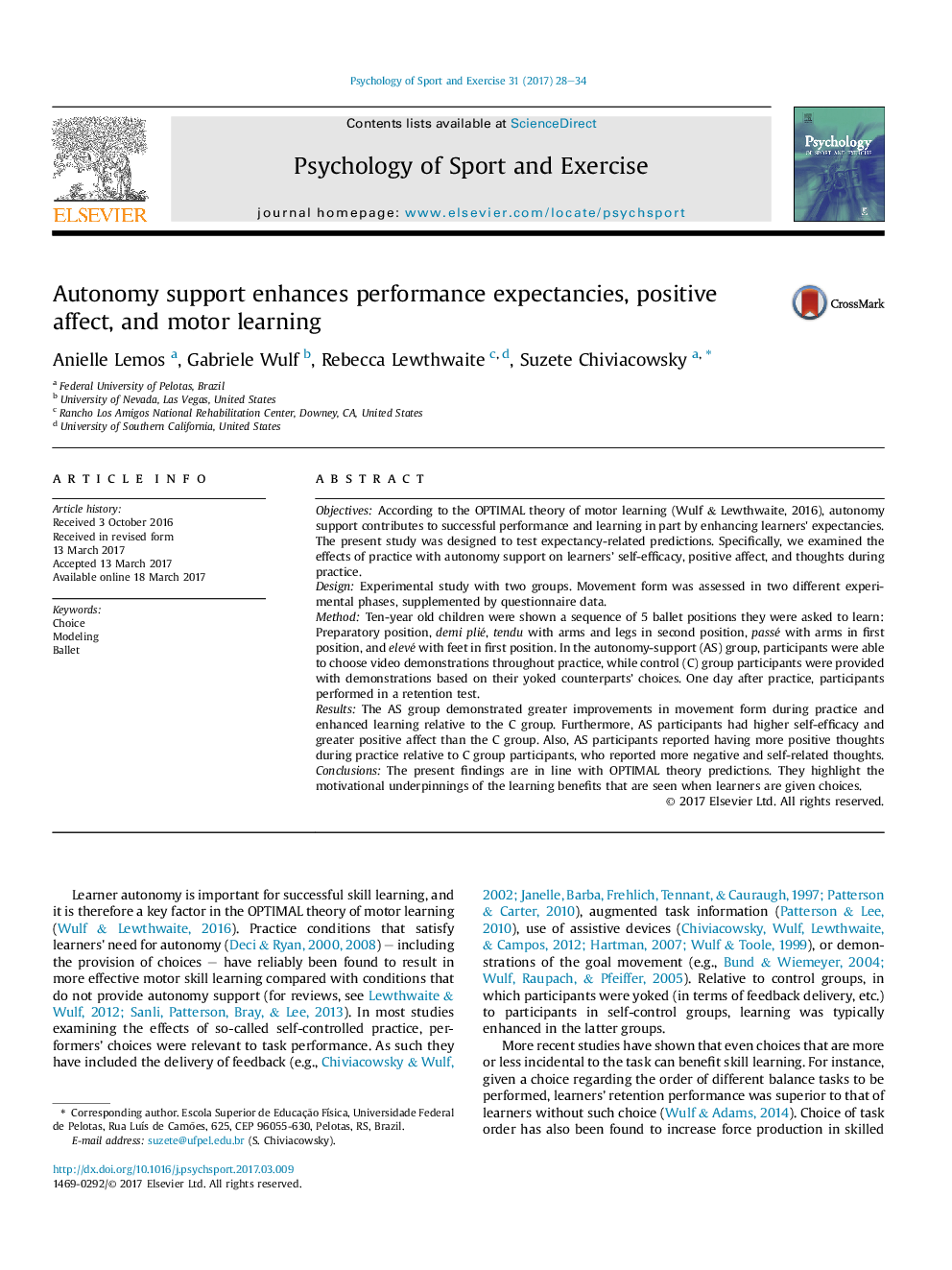| کد مقاله | کد نشریه | سال انتشار | مقاله انگلیسی | نسخه تمام متن |
|---|---|---|---|---|
| 5036491 | 1472096 | 2017 | 7 صفحه PDF | دانلود رایگان |
- We investigate predictions of the OPTIMAL theory of motor learning.
- Positive affect and self-efficacy are higher in an autonomy-support group.
- Enhanced learning is also observed for a group provided with autonomy support.
- The results demonstrate motivational influences on motor learning.
ObjectivesAccording to the OPTIMAL theory of motor learning (Wulf & Lewthwaite, 2016), autonomy support contributes to successful performance and learning in part by enhancing learners' expectancies. The present study was designed to test expectancy-related predictions. Specifically, we examined the effects of practice with autonomy support on learners' self-efficacy, positive affect, and thoughts during practice.DesignExperimental study with two groups. Movement form was assessed in two different experimental phases, supplemented by questionnaire data.MethodTen-year old children were shown a sequence of 5 ballet positions they were asked to learn: Preparatory position, demi plié, tendu with arms and legs in second position, passé with arms in first position, and elevé with feet in first position. In the autonomy-support (AS) group, participants were able to choose video demonstrations throughout practice, while control (C) group participants were provided with demonstrations based on their yoked counterparts' choices. One day after practice, participants performed in a retention test.ResultsThe AS group demonstrated greater improvements in movement form during practice and enhanced learning relative to the C group. Furthermore, AS participants had higher self-efficacy and greater positive affect than the C group. Also, AS participants reported having more positive thoughts during practice relative to C group participants, who reported more negative and self-related thoughts.ConclusionsThe present findings are in line with OPTIMAL theory predictions. They highlight the motivational underpinnings of the learning benefits that are seen when learners are given choices.
Journal: Psychology of Sport and Exercise - Volume 31, July 2017, Pages 28-34
